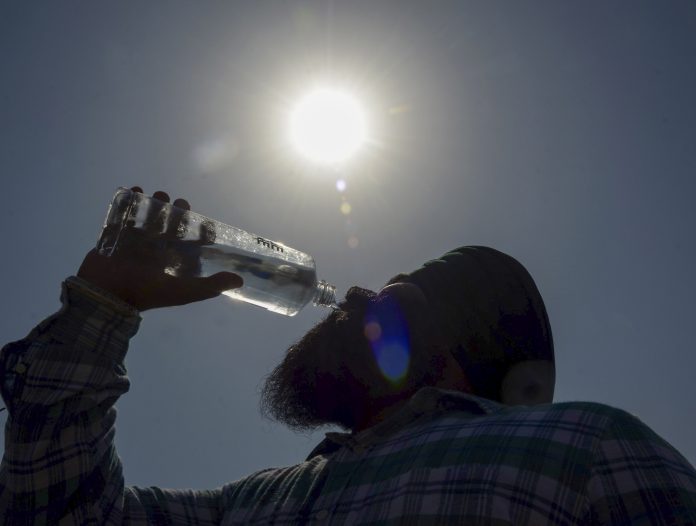NEW DELHI, Jun 18: Large parts of northern and eastern India remained in the grip of a sweltering heat wave on Tuesday, driving power demands to record highs with warmer-than-usual nights further exacerbating people’s distress.
The India Meteorological Department (IMD) said heat wave to severe heat wave conditions prevailed in parts of Uttar Pradesh, south Uttarakhand, Himachal Pradesh, Haryana, Chandigarh, Delhi, Punjab and pockets of north Madhya Pradesh, Odisha, Jharkhand, Bihar and the Jammu division.
Maximum temperatures ranged from 44 to 46 degrees Celsius in many parts of Punjab, Haryana, Chandigarh, Delhi, Uttar Pradesh, and some parts of north Madhya Pradesh, south Bihar and north Rajasthan.
Delhi, facing a severe water crisis, recorded a maximum temperature of 44 degrees Celsius over five notches above the normal. The minimum temperature in the city was 33.8 degrees Celsius, at least six notches above what is normal for this time of the year.
The national capital’s peak power demand on Tuesday afternoon reach 8,647 MW, the highest ever for the city. According to officials, cooling load due to the increased use of air conditioners and other cooling appliances amid the relentless heat wave has led to the record rise in power demand.
IMD officials said high minimum temperatures or warm nights are exacerbating the impact of the deadly heat.
High night temperatures are considered dangerous because the body does not get a chance to cool down. Increasing nighttime temperature is more common in cities because of the urban heat island effect, in which metro areas are significantly hotter than their surroundings.
At least 10 places in Uttar Pradesh, Delhi, Punjab and Haryana reached or surpassed 45 degrees Celsius on Tuesday, with Orai in Uttar Pradesh being the warmest place in the country at 46.4 degrees Celsius.
“This is scaring me. The minimum temperature in cities is not going down. People are not getting a chance to recover which means that we are getting more deaths at night than during the daytime, because normally the minimum temperature would fall and you would be able to recover to go back to work the next day, just not getting that,” noted environmentalist Sunita Narain told PTI editors here.
India is experiencing one of its hottest summers this time. Multiple heat waves have pushed millions in the country to their limits and many states have reported heat-related deaths.
According to IMD, around 40 per cent of the country has recorded double the number of heat wave days than it usually does.
Rajasthan has hit 50 degrees Celsius twice over the last few weeks, and Delhi has recorded temperatures above 40 degrees Celsius for 36 consecutive days.
The IMD also said heavy to very heavy rainfall is likely to continue over Sub-Himalayan West Bengal, Assam and Meghalaya during the next two days. (PTI)


